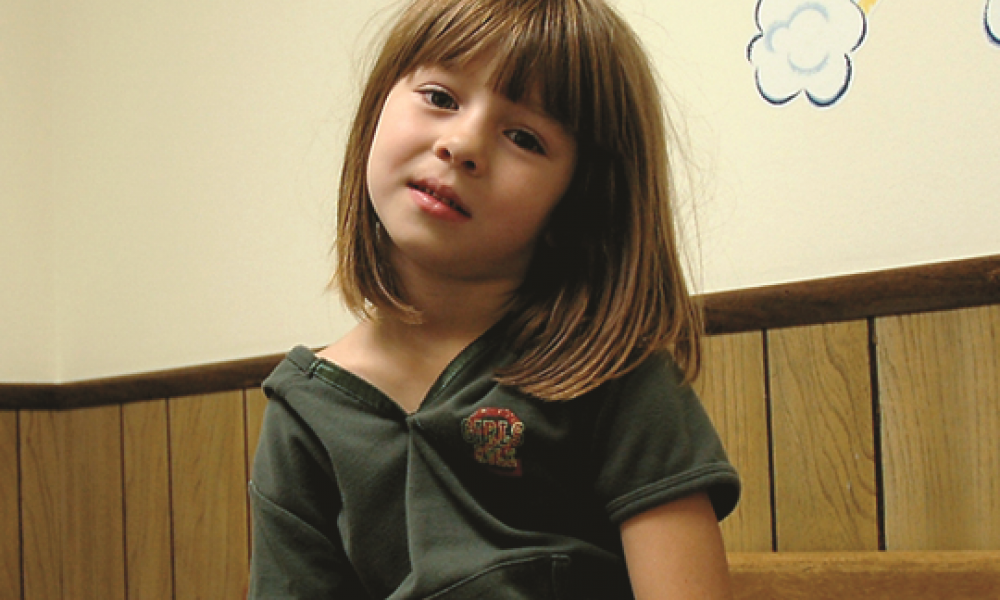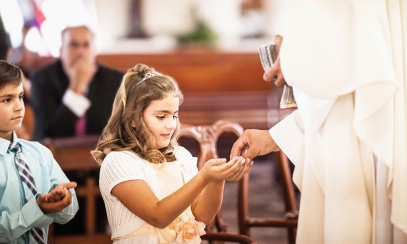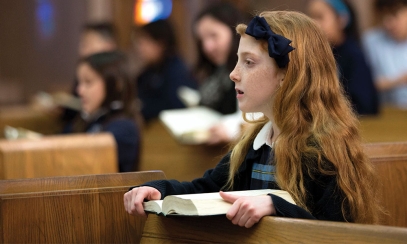
Why Am I Sick?
How We Help Children Deal With Illness
How We Help Children Deal With Illness
Talitha koum! Little girl, I say to you arise! The Gospel of Mark that greets us in July involves a “sandwich story” of Jesus’ mercy. Jairus entreats Jesus to heal his daughter, but is interrupted. A woman touches Jesus’ cloak, convinced that her hemorrhaging will be cured. Jesus acknowledges her faith and the cure. Reaching Jairus’ home and being told the little girl is dead, Jesus speaks and she rises.
Contemporary children are not spared from disease and death any more than children were spared in biblical times. They need our help to incorporate faith into their understanding of health and illness.
Illness is NOT a punishment from God.
People don’t get sick because they do something wrong. In biblical times, it would have been assumed that the woman in the Gospel was hemorrhaging because she had sinned. Children often make this assumption, too. Make sure that they know that God doesn’t decide to give people diseases or cause accidents.
Prayers are answered in different ways.
We don’t always understand God’s will when we pray the Our Father and say the words, “Thy will be done.” Often, we want Jesus to say, “Talitha koum!” and bring about physical cures. Children, and even adults, want God to answer prayers in certain ways. The Holy Spirit does answer our prayers – but sometimes it is through comfort and healing, not curing.
Look beyond what you think you see.
The crowd around Jairus’ daughter saw only death, but Jesus saw life. Sometimes, children are disturbed by the appearance of those who are sick or injured. Explain aspects of physical appearance or of medical equipment that might seem unusual ahead of time. Allow time for children to adjust to the situation – age and temperament play a major role.
As parents, we need to help our children when they are distressed or when they are in the presence of others who are ill, so that they can realize God is there, too – offering comfort and consolation.



